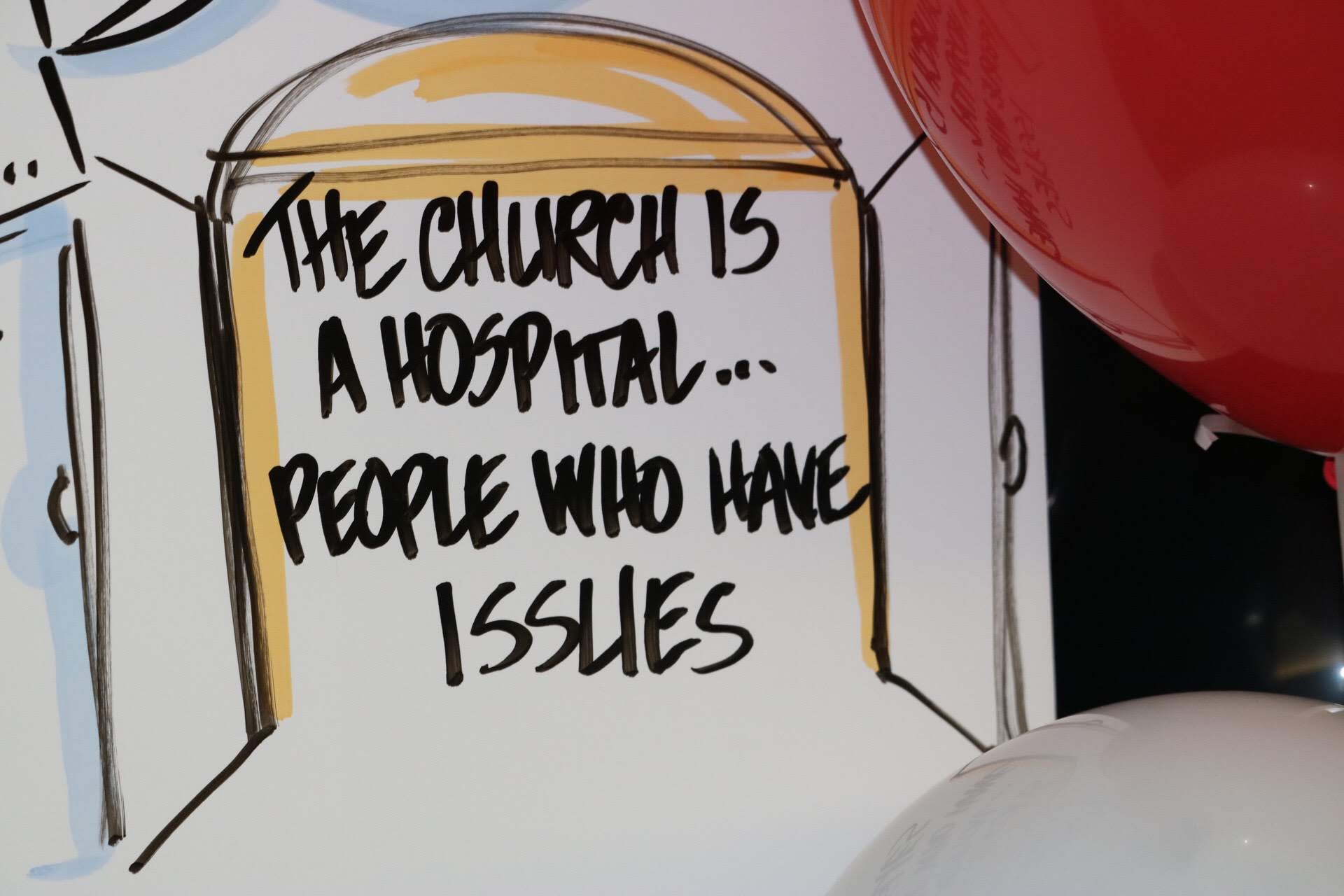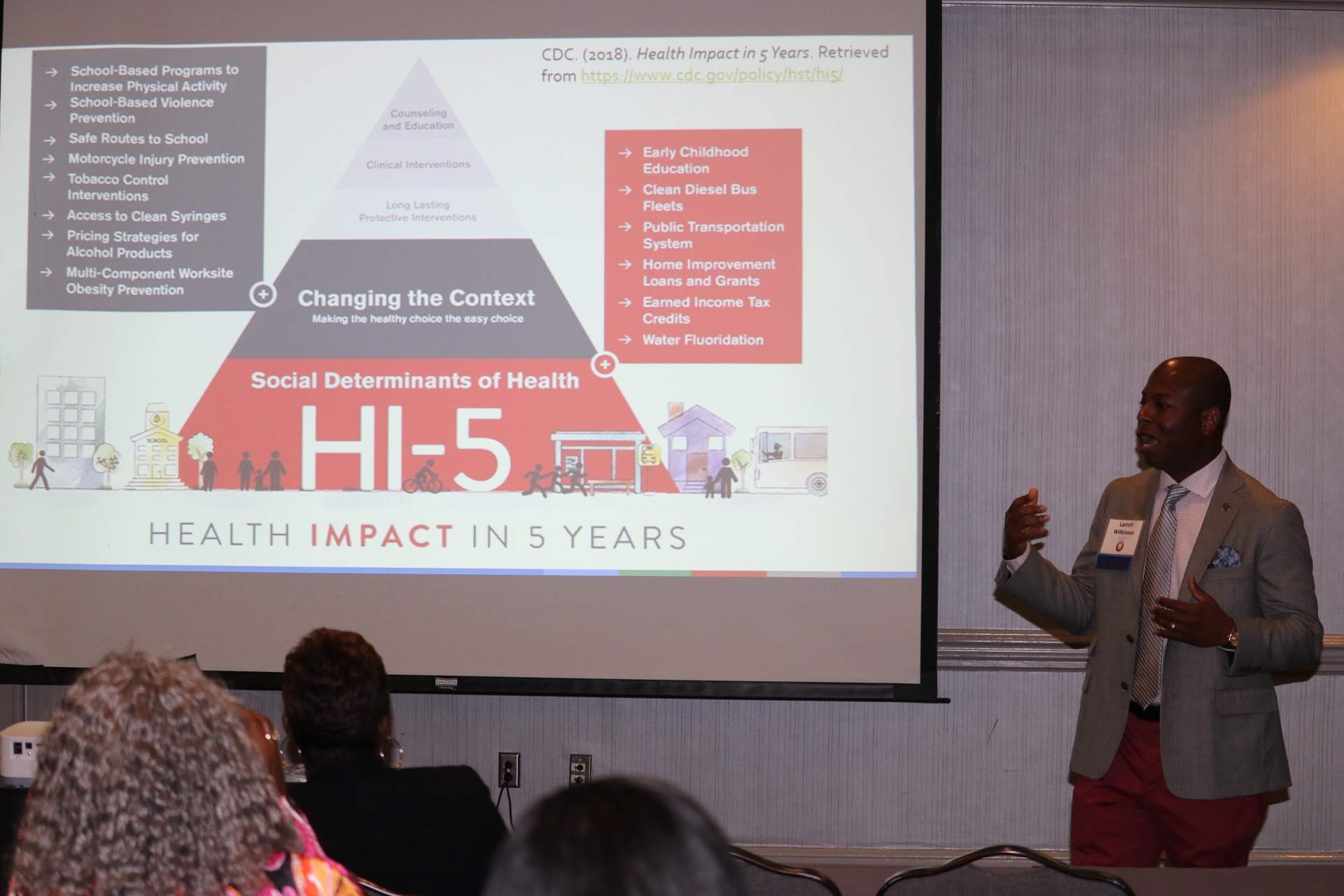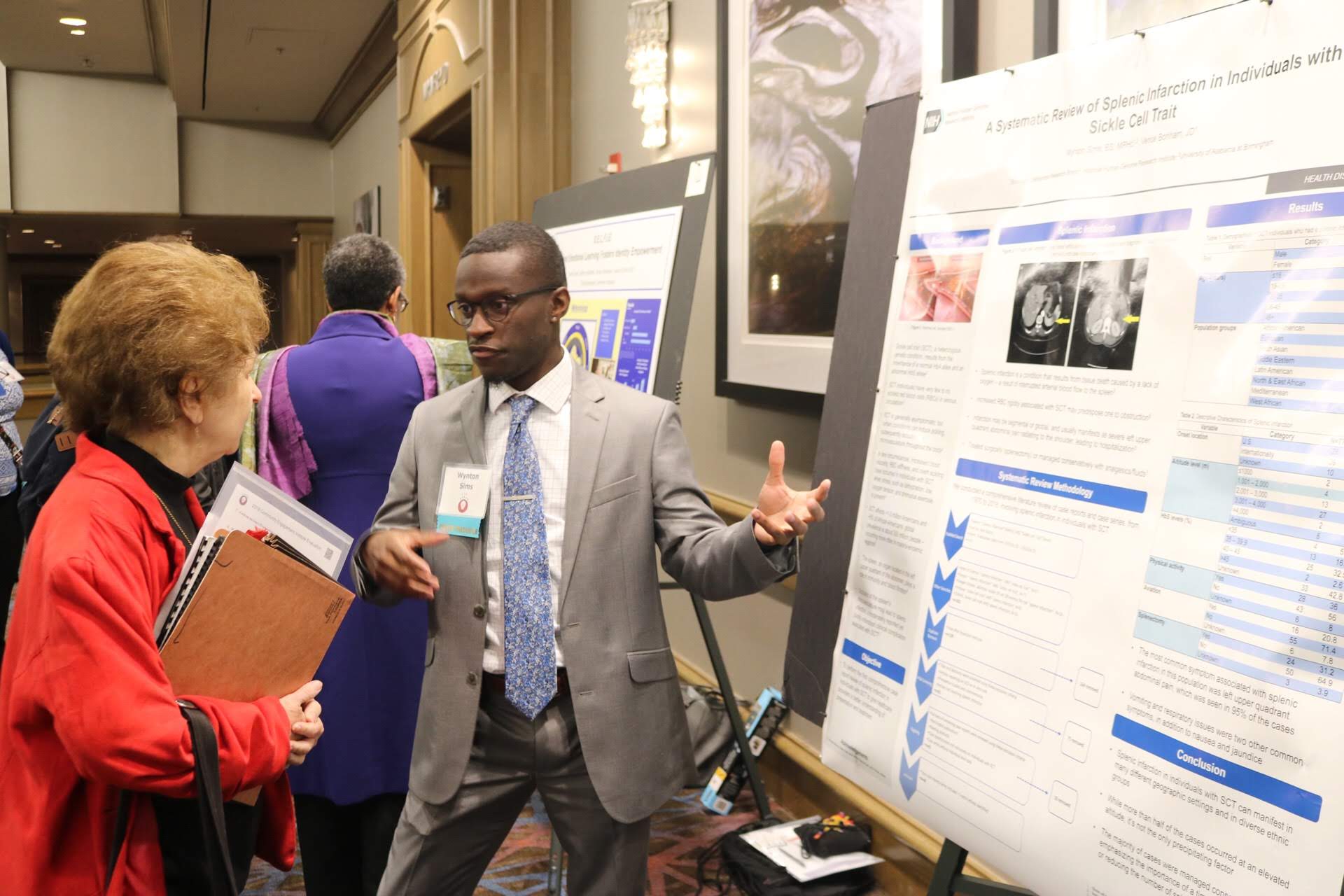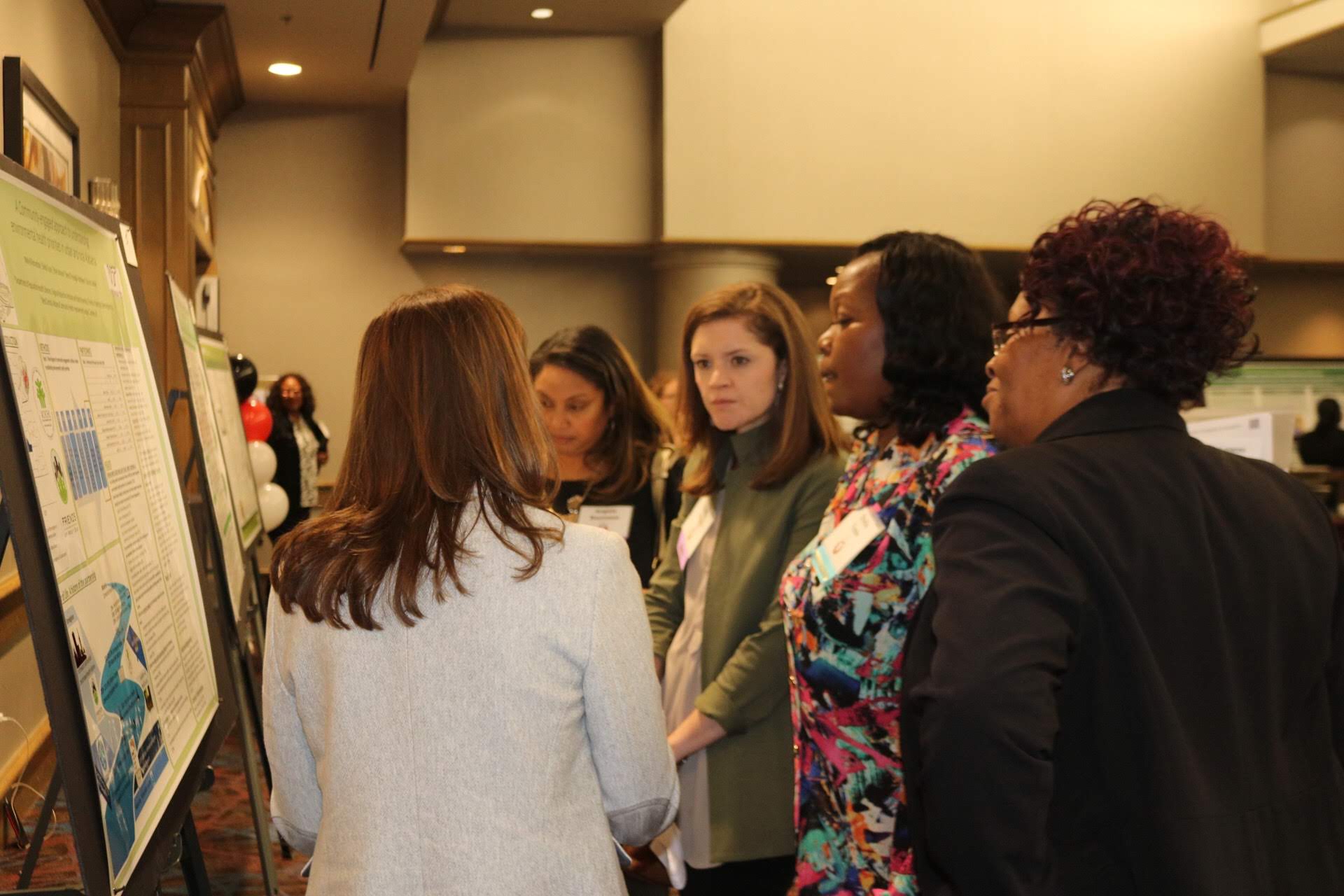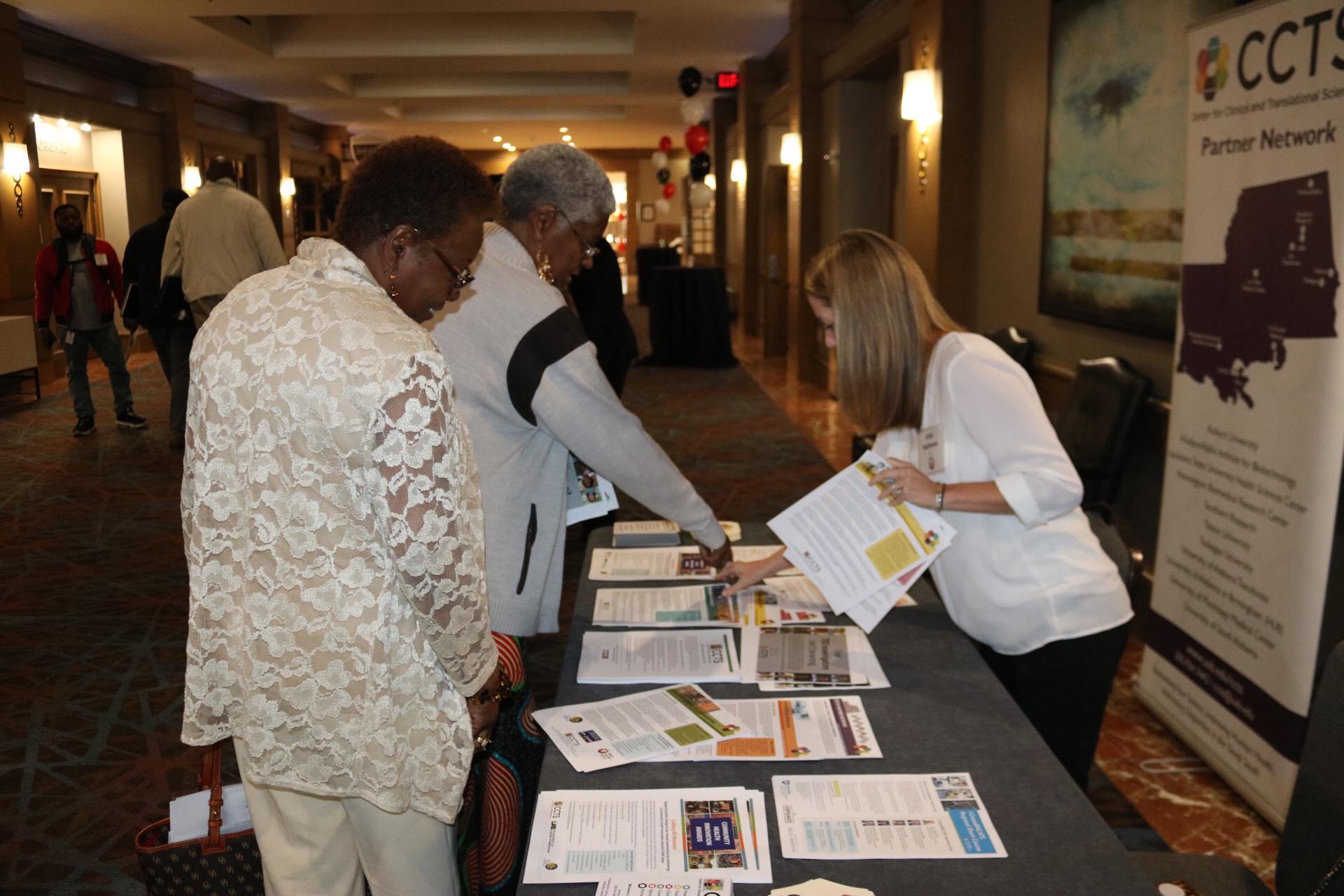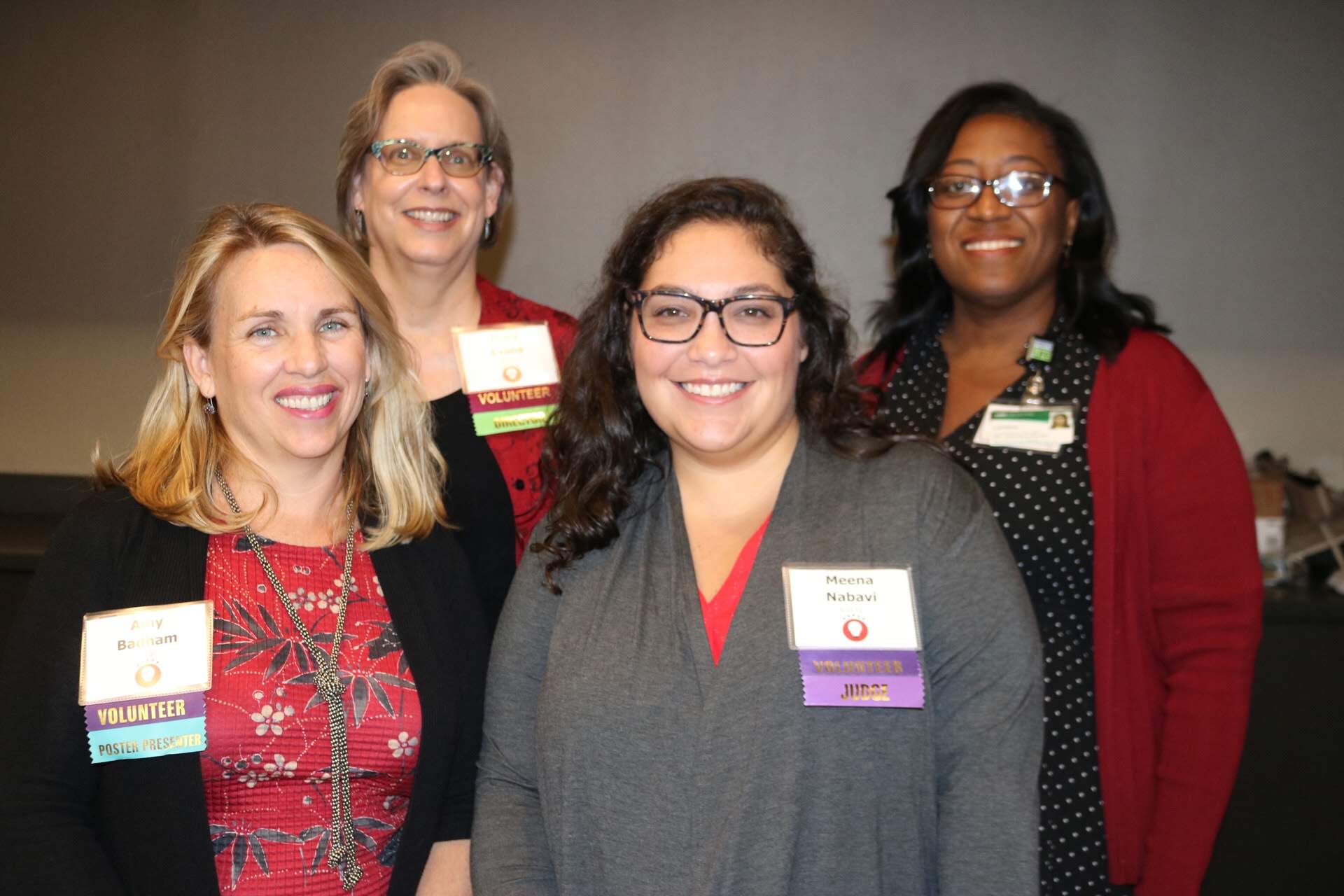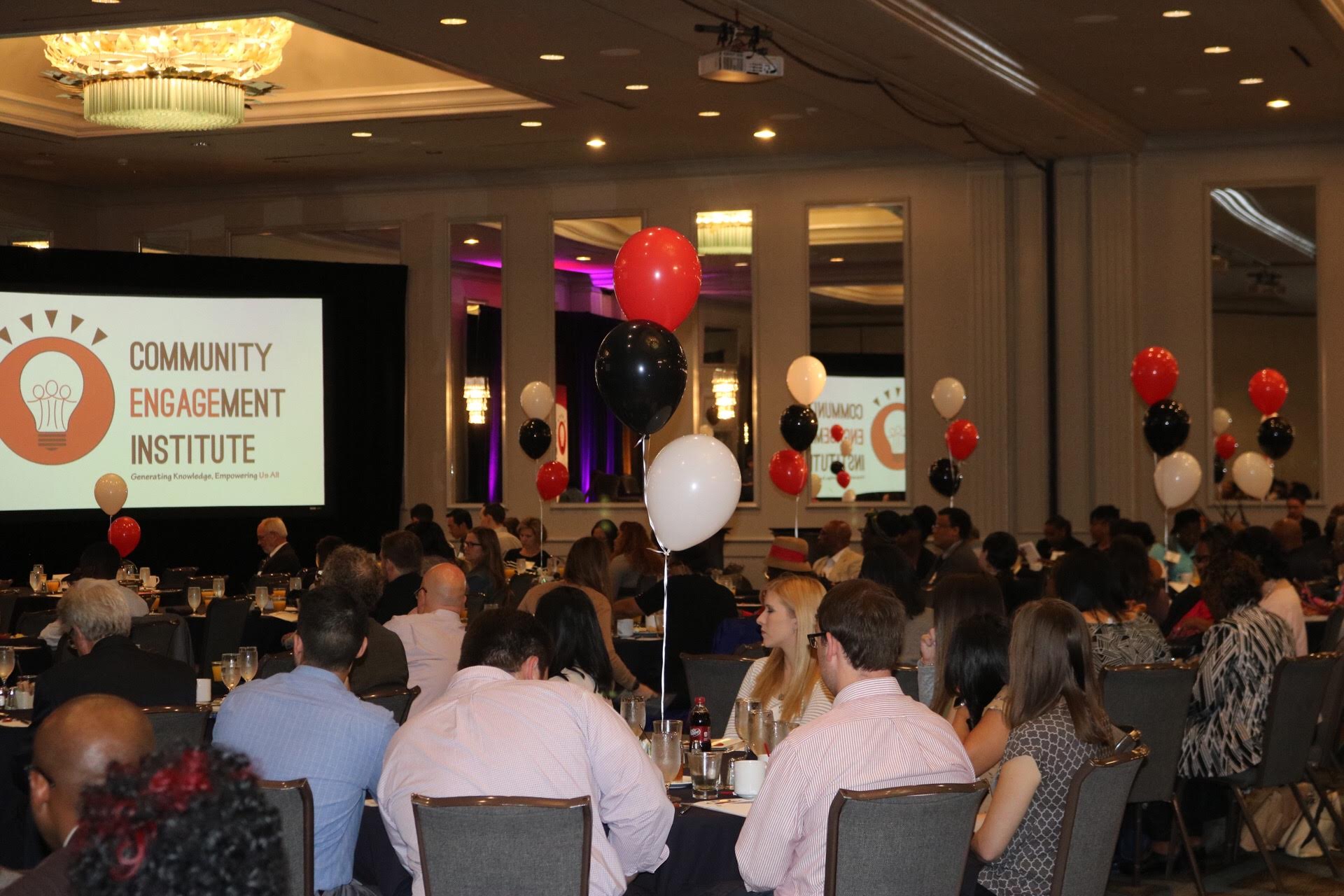 CEI 2018 drew more than 150 participants from a variety of disciplines and sectors, all interested in building bridges to better health.
CEI 2018 drew more than 150 participants from a variety of disciplines and sectors, all interested in building bridges to better health.
The 5th Annual Community Engagement Institute (CEI) took place on Friday, October 12, drawing more than 150 participants from across the Deep South as well as a robust virtual audience comprising three CCTS Partner institutions (UA, USA, UMMC) who watched livestreamed sessions and interacted via social media. The full-day symposium, which took place at the Hyatt Regency (The Wyndham) in Hoover, Alabama, explored ways to reach across sectoral divides to work synergistically on our region’s greatest health challenges.
The morning began with a thought-provoking panel discussion moderated by OGC Council Member Lyord Watson, Jr., M.Div., Minister of Education at the Birmingham Tabernacle Baptist Church. Joining him were four panelists representing distinct sectors that focus on community health needs, including David Hicks, DO, Deputy Health Officer, Jefferson County Department of Health (JCDH); Nadia Richardson, PhD, CEO and Founder, No More Martyrs; Reverend Fred Witt, Pastor, Agape Missionary Baptist Church; and Andrea Cherrington, MD, MPH, UAB Division of Preventive Medicine and Co-Director of the Community Engagement Core for the Diabetes Research and Training Center at Cooper Green Mercy Hospital. Their topic was “Who Contributes to the Health of Our Communities?” It ended with a lively Q&A session, including several questions sent via Twitter from virtual attendees.
The panel discussion set the stage for breakout sessions that examined the role of different sectors in addressing community health needs. Attendees selected the sector (e.g., philanthropy, government, social justice, and education) that most closely aligned with their interests and backgrounds.
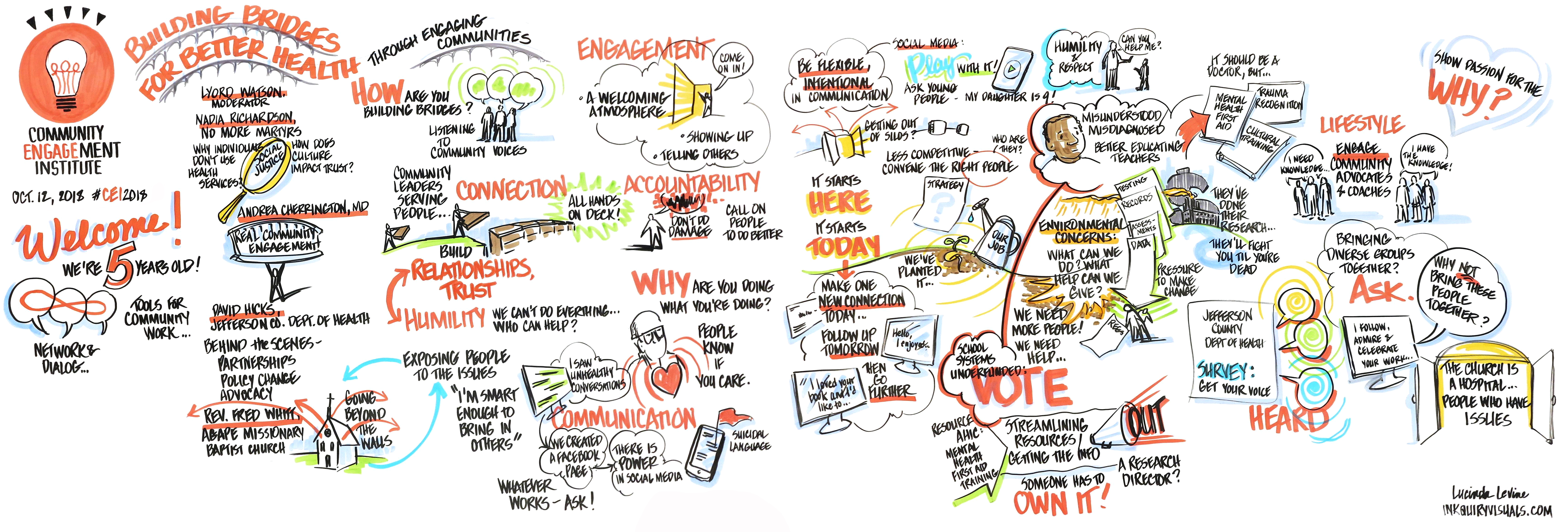
This year’s keynote speaker, Dr. Derek M. Griffith, PhD, Founder and Director of the Center for Research on Men’s Health and Professor of Medicine, Health, and Society at Vanderbilt University, explored determinants of health and their role in racial and gender health disparities. He discussed racism’s role as a factor that helps explain the differences in mortality between Blacks and Whites in the U.S. The majority of his talk, however, focused on “within group” issues that hurt the health of all men. “This year thousands of men will die from stubbornness,” he said, not seeking health care until it is too late.
Attendees broke into small groups in the afternoon—the World Café session stimulated “group think” and lively discussions about ways to bring the morning’s bridge building ideas to life. Each group had a flip chart to capture responses to the following questions, which they shared with the broader group during the Harvest Café session:
- What are specific ways we can create safe places and spaces for dialogue to strengthen the health of our communities?
- What are the barriers to strengthening the health of our communities?
- Who are the leaders that need to be engaged?
- Which public and private organizations are responsible for the resources to strengthen the health (physical, mental, spiritual, and socioeconomic) of our many diverse communities?
The symposium also featured a poster session and multiple opportunities for attendees to network with each other as well as with speakers and poster presenters. Congratulations to the authors of the six posters that won awards:
1st Place
Innovative Strategies to Improve Living Kidney Donation (Alexis Carter & Markayla Peoples)
2nd Place (three-way tie)
Utilizing Facilitated Deliberation to Inform Genomic Screening Initiatives (Jamie Richards)
ATLAS: Alabama Teens Learn About Substance (Use) (Michelle Kung)
A Systematic Review of Splenic Infarction in Individuals with Sickle Cell Trait (Wynston Sims)
3rd place (two-way tie)
Utilizing Physician Referrals to Increase Community Engagement of School-Aged Children and Their Parents in a Family-Based Behavioral Treatment for Pediatric Overweight/Obesity (Caroline Keller and Marissa Gowey)
Dispensing Hope to Improve Medication Adherence (Connie White-Williams and Alysia Campbell)
About the CEI
CEI is a joint activity of CCTS and its One Great Community Council and the Center for the Study of Community Health and its Jefferson County Community Participation Board. Together we extend a hearty thank you to the Alabama Public Health Institute and Protective Life for their sponsorship of CEI 2018. We also thank our CEI 2018 Planning Committee: Shauntice Allen, Andria Cimino, Mary Evans, Max Michael (chair), and Lyord Watson.

